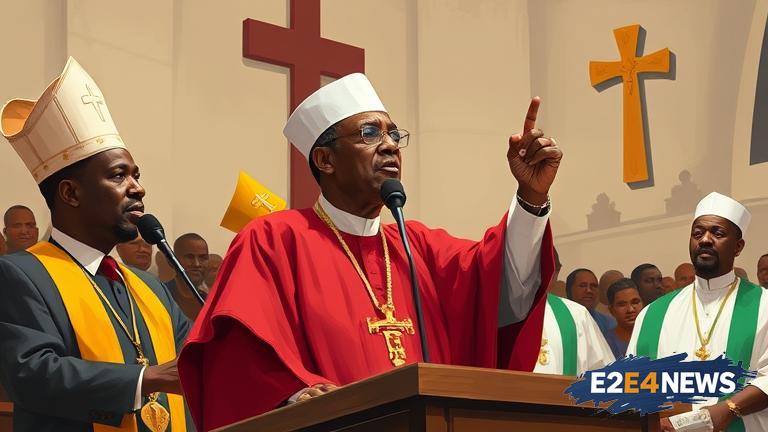The Anglican Church in Nigeria has taken a significant step by banning politicians from using the church’s podium for their campaigns. This decision comes after a recent controversy involving the Minister of the Federal Capital Territory, Nyesom Wike. The church’s leadership has stated that the decision is aimed at maintaining the sanctity and neutrality of the church. The move is seen as a response to the increasing trend of politicians using religious platforms to further their political ambitions. The church’s authorities have emphasized that the decision is not targeted at any particular individual or group, but rather a measure to protect the church’s integrity. The Anglican Church in Nigeria has a large following and is one of the most influential Christian denominations in the country. The church’s decision is likely to have far-reaching implications for politicians who have grown accustomed to using religious platforms to reach their constituents. The ban is also seen as a way to prevent the church from being dragged into partisan politics. The church’s leadership has assured its members that the decision is in the best interest of the church and the country at large. The move has been welcomed by many Nigerians who feel that the church should remain a sacred and neutral institution. However, some politicians have expressed disappointment and frustration with the decision, arguing that it will limit their ability to reach their constituents. The Anglican Church in Nigeria has a long history of promoting social justice and moral values, and the decision to ban politicians from the pulpit is seen as a continuation of this tradition. The church’s authorities have also emphasized that the decision is not a reflection on the legitimacy of politicians or their right to participate in the political process. Rather, it is a measure to ensure that the church remains a sacred and respected institution. The decision is also seen as a way to promote a more nuanced and respectful approach to politics, one that is not driven by partisan interests or personal ambitions. The Anglican Church in Nigeria has called on its members to respect the decision and to focus on promoting the values of justice, equality, and compassion. The church’s leadership has also assured its members that the decision will not affect its commitment to social justice and community development. The ban on politicians from the pulpit is a significant development in Nigerian politics and is likely to have far-reaching implications for the country’s political landscape.
